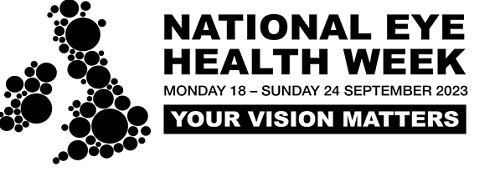Vision News
Care home residents could be suffering in silence due to deteriorating eye health
Care home residents could be suffering in silence due to deteriorating eye health
Specsavers is calling for equal access to eye care for all; especially people in care homes

ALMOST a quarter of a million people living in UK care homes could unknowingly have an eye condition, which could lead to permanent sight loss if not spotted and treated in time.1,2.
And the problem is only set to get worse, with half of the estimated 632,000 people living in England’s care homes expected to have some form of vision loss within the next 10 years.
The research comes as this National Eye Health Week (18 – 24 September), Specsavers is calling for equal access to eye care for all, especially those in care homes that can face extra challenges accessing care.
Of the 2.7 million people in the UK who would benefit from domiciliary eye care, only 460,000 eye tests were recorded between 2019 and 2020.3 While regular eye tests are essential for everyone, they are especially important for people living in care homes, as they are five times more likely to experience sight loss, contributing to social isolation and reduced independence.1
However, due to complex medical needs, such as dementia, reduced mobility and hearing loss, many care home residents are unable to access high street opticians, communicate their eye care needs, or easily access home visit services.
A government requirement to submit a pre-visit notification before carrying out an eye test for those who can’t leave their home unaccompanied, including those in care homes is also being called at by Specsavers as an unnecessary administrative step which is further thwarting access to eye care.
Currently, optometrists are required to notify the NHS at least 48 hours before making a visit to one or two customers and three weeks before seeing three or more customers at the same address. Specsavers is calling for the removal of this pre-visit notification and will be highlighting this discriminatory barrier to MPs and the need for a consistent approach to eye care for everyone throughout England. `

Dawn Roberts, Specsavers home visits clinical director, says ‘Maintaining good vision is a key part of any person’s quality of life, but perhaps more so for care home residents because they often have limited mobility and so most of their hobbies and pastimes will involve visual tasks.
‘Sight loss can be very isolating and for those already struggling with memory problems or dementia, any confusion and disorientation is exacerbated by impaired vision. This can lead to a loss of engagement in social activities and sometimes increased risk of falls. Providing regular eye care can minimise or even eliminate these issues for people living in care homes allowing them to enjoy doing the things they want to do.
‘Specsavers is proud to offer home visits to anybody unable to leave their home, including residents of care homes.’
Specsavers Home Visits, which is celebrating its 10-year anniversary, carries out the same standard of eye test in people’s homes that is found in Specsavers’ stores, but with just with a few changes and specialist equipment to make them home friendly.
In the past year alone, the team of mobile opticians have dispensed more than a quarter of a million glasses to those who can’t leave their homes unaccompanied referred over 20,000 for treatment to safeguard their sight.
Linda Fudge, 75, has lived in a care home for the past eight months. She says: ‘My poor eyesight was having a significant impact on my day-to-day life. I was struggling to focus clearly on my family and friends or my favourite activities. As I have Parkinson’s Disease, my mobility has decreased therefore being able to catch up with loved ones, read and do quizzes is more important than ever so I asked for a home eye test.
‘The Specsavers Home Visits team were friendly and helpful and did a thorough eye test. I now have a lovely pair of new glasses. As a retired nurse, I know the significance that good eye health has on maintaining as much independence as possible so home eye tests really are essential for people that can’t access them on the high street.’
Janie Wilkins, Belmore Lodge home manager, adds: ‘Many of our care home residents find it difficult to access services outside of the home, making Specsavers Home Visits invaluable for them. It is important that life continues as normal when people come to live with us, and this includes them having access to the same healthcare services that are available on the high street.
‘Maintaining optimum vision is a significant factor in sustaining independence and enabling residents to enjoy all aspects of communal living. From a personal perspective, my own mother is in a local care home and recently had a Specsavers home visit and new glasses. This has massively improved her ability to communicate and continue the hobbies she loves.’
Regular eye tests are not only important in identifying changes in vision and detecting the early signs of multiple eye conditions, but also because sight loss can have a significant impact on the overall safety and wellbeing of a person, particularly if they are older. The rate of falls in older people with sight loss increase by 1.7 times1, the medical cost of falls directly related to having sight loss is £128m.1
Specsavers’ provides Dementia Friends training, as part of an initiative run by the Alzheimer’s Society, to help support the needs of people living with dementia.
References
- https://www.bl.uk/collection-items/undetected-sight-loss-in-care-homes-an-evidence-review
- https://www.statista.com/statistics/1082379/number-of-people-living-in-care-homes-in-the-united-kingdom/
- https://www.aop.org.uk/ot/industry/equipment-and-suppliers/2022/02/03/a-growing-domiciliary-demand#:~:text=At%20the%20moment%20it%20is,benefit%20from%20domiciliary%20eye%20care
- https://www.pocklington-trust.org.uk/wp-content/uploads/2020/10/Falls-in-Older-People-with-Sight-Loss.pdf
- https://www.rnib.org.uk/professionals/health-social-care-education-professionals/knowledge-and-research-hub/key-information-and-statistics-on-sight-loss-in-the-uk/



















